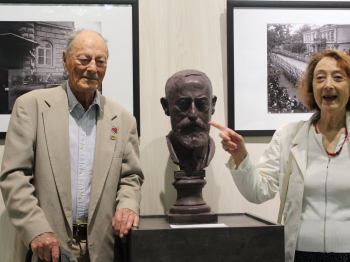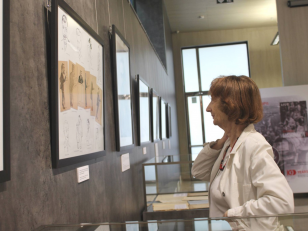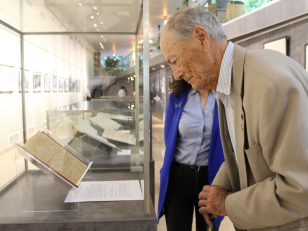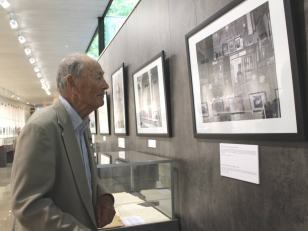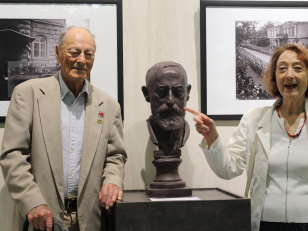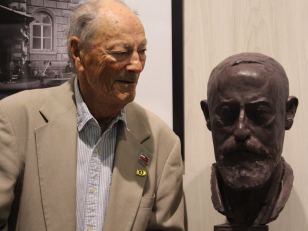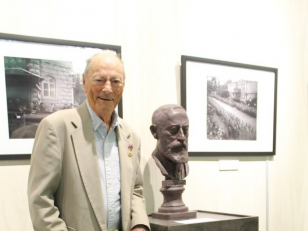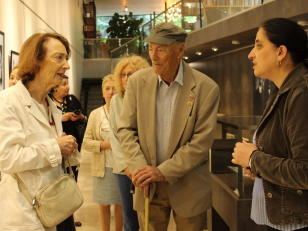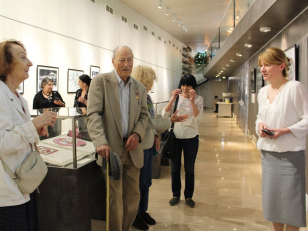The National Archives was visited by the son of the first chairman of the government of the First Republic of Georgia – Redjeb Jordania and granddaughter Kristine Paghava-Boulez. The visitors viewed the exhibition “The First Republic of Georgia” in the exhibition pavilion. The exhibition, dedicated to the 100th anniversary of independence of Georgia, was opened on 25 May.
The independence act of the Democratic Republic; The 1921 constitution signed by the members of the Constituent Assembly; The original documents of landmark importance of the government, the National Council, the Constituent Assembly and other state structures; other material unknown to the Georgian citizens, which reflects the work of the government during the emigration period; the originals of the emblem and the standard of the Democratic Republic; photo and film material of the 1918-1921 history – among all these exhibits the Leuville archive is presented for the first time.
The photo material and the manuscripts were brought to Georgia a few weeks ago and are completely unknown for viewers. It was possible to bring the exhibits to Georgia via cooperation between the Ministry of Justice and the descendants of Noe Ramishvili. The main base of the documents of the First Democratic Republic is preserved in the National Archives of Georgia. The latest archive of the Leuville Estate has become an inseparable part of the fonds.
Among the unique exhibits can be found the following – bust of Noe Jordania by Iakob Nikoladze (1920); the flag of the Democratic Republic of Georgia; weapons and equipment from the First Republic period; books, periodical editions and other items released in 1918-21.
The history of 1918-21 is presented in different themes for the viewers: the constituent documents of the First Republic; the founders of the Democratic Republic; general elections; foreign relations; military theme; economics; culture and education; public life.
The exhibition pavilion of the National Archives will receive viewers until 14 June. Admission is free for everyone.




